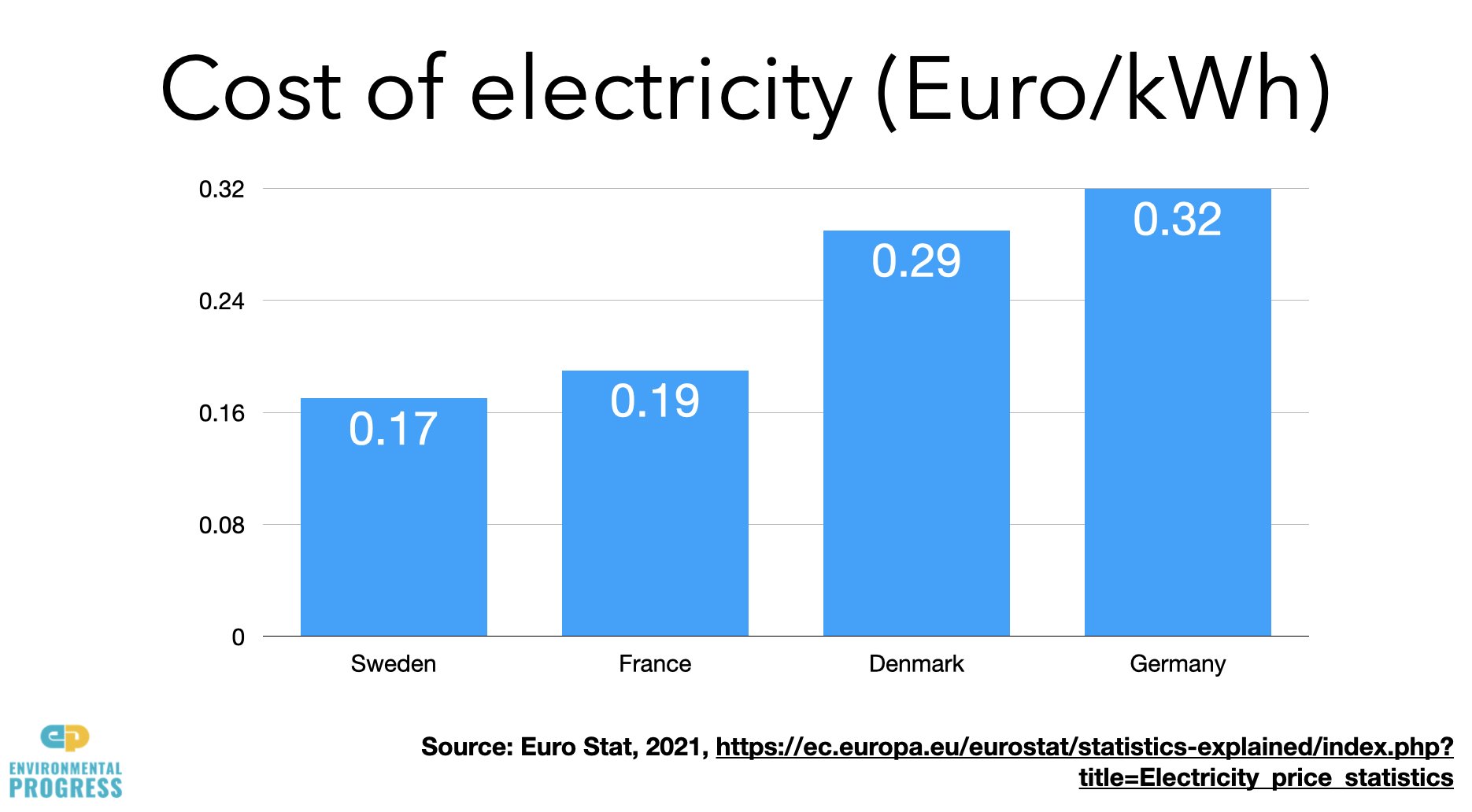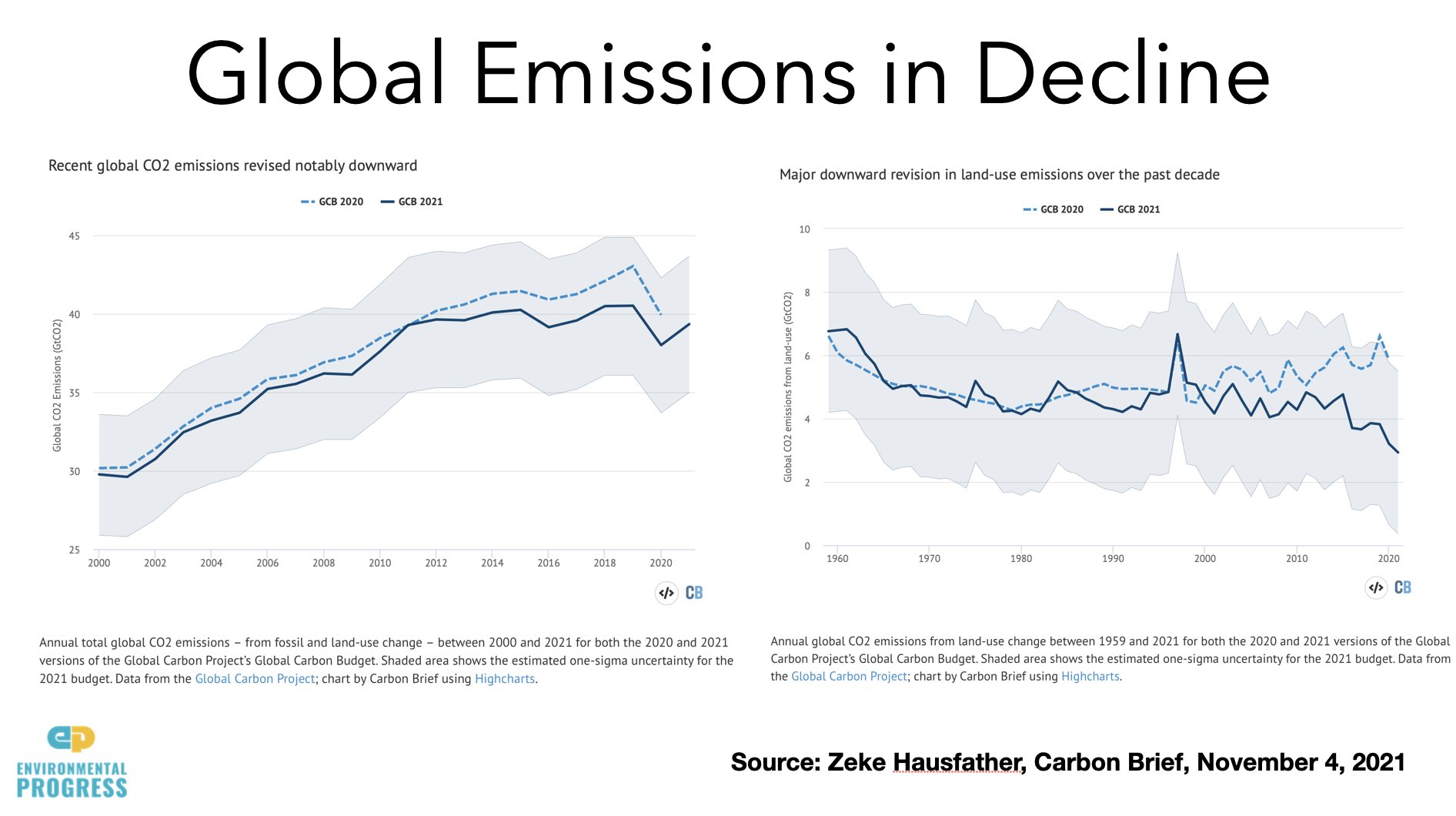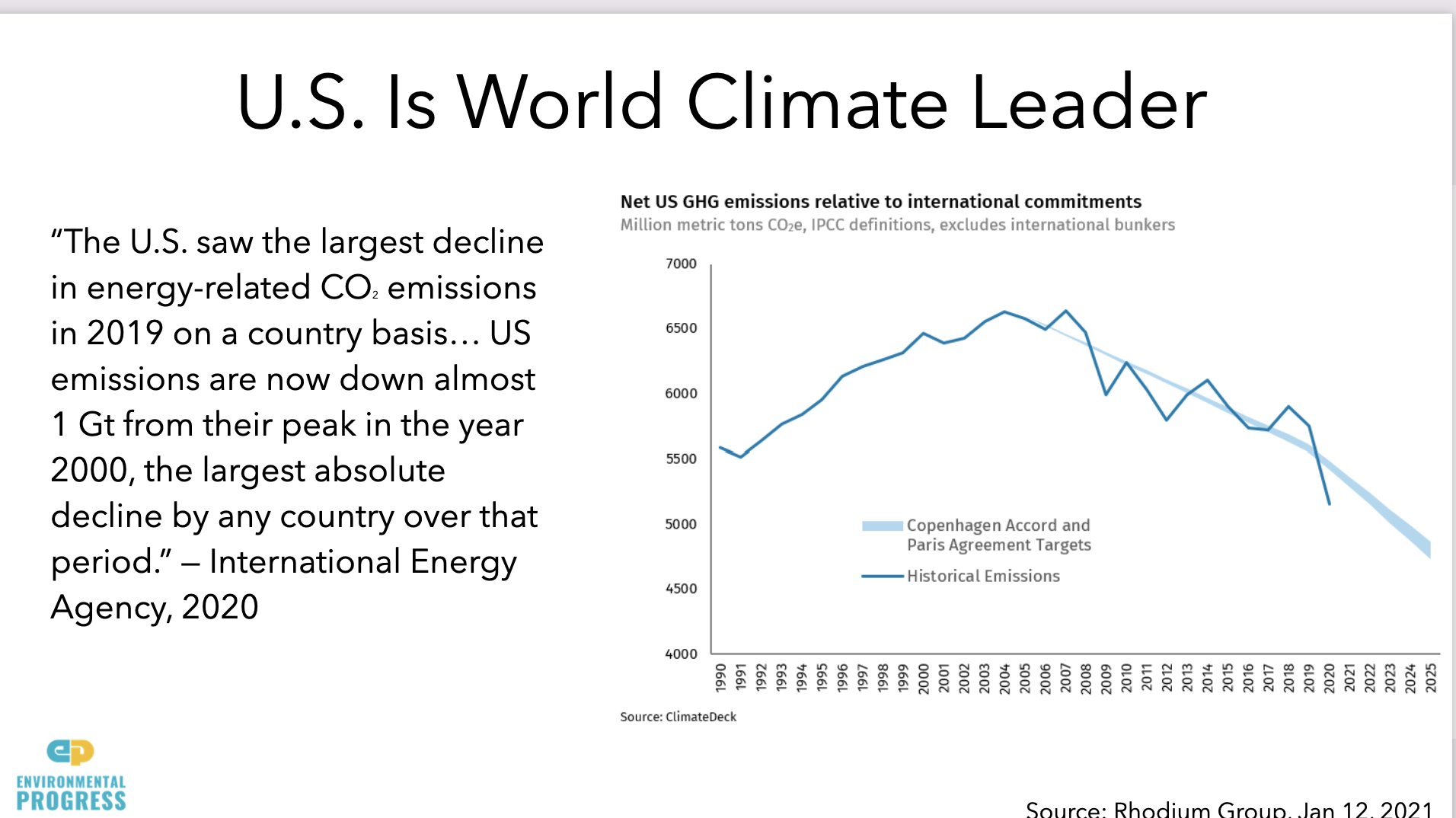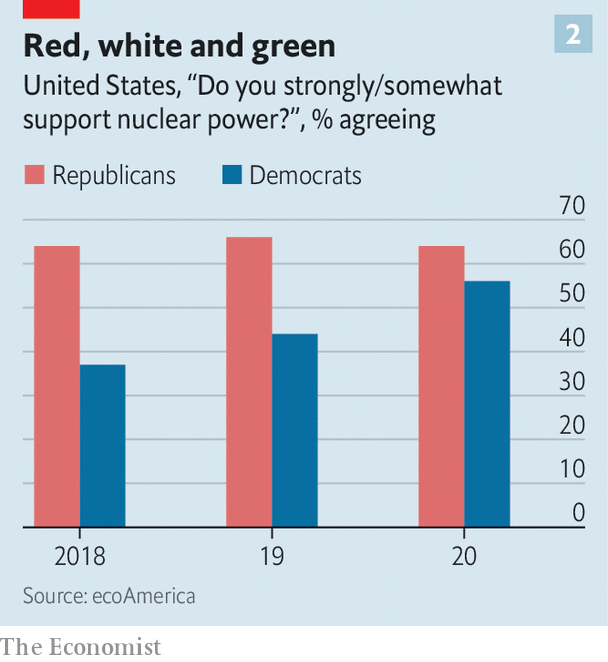Thread by Michael Shellenberger
- Tweet
- Dec 19, 2021
- #FossilFuel #Energy
Thread
People are mad at @Sen_JoeManchin for killing Biden's Build Back Better, but progressive dogmatism is to blame. Dems could have written a bill that expanded nuclear & nat gas. Instead, they doubled down on bloated, inflationary subsidies for renewables.
michaelshellenberger.substack.com/p/climate-dogma-killed-bidens-build
michaelshellenberger.substack.com/p/climate-dogma-killed-bidens-build
The centerpiece of President Joe Biden’s legislative agenda is dead. Senator Joe Manchin today announced that he could not support Biden’s “Build Back Better” legislation which consisted of $1.7T in new spending and would have added $158B to the debt over the next decade.
The largest component of spending, $570 billion, was for renewables, electric cars, and other climate change investments
Progressives, environmentalists, and Democrats are furious with Sen. Manchin, but it was their climate and renewables dogmatism that doomed the legislation.
Progressives, environmentalists, and Democrats are furious with Sen. Manchin, but it was their climate and renewables dogmatism that doomed the legislation.
Democrats could have written legislation that expanded nuclear energy and natural gas, the two main drivers of decarbonization, which are strongly supported by Manchin, and Republicans, but instead investments went overwhelmingly to solar panels, wind turbines, and electric cars.
There were good things in BBB & one of the worst provisions, the Clean Energy Performance Program, was removed. BBB included a tax credit for nuclear plants, funding for advanced fuels, funding for fusion R&D, and $ support for communities hurt by the transition to renewables.
But the money for nuclear would not have made much if any difference to the operating of nuclear plans. Nuclear plants in California, Massachusetts and New York are being shut down, despite already being profitable, for ideological reasons.
Legislatures in less anti-nuclear states like Illinois, New Jersey, and Connecticult step in to save their plants when they need to. And higher electricity prices due to natural gas shortages are making nuclear plants in other states even more profitable.
Of Build Back Better’s $550 billion for climate and energy, the vast majority of it was for weather-dependent renewables and their enabling infrastructure, including $29B for a “green bank” to finance renewables and $10B for rural coops to switch to renewables.
Such subsidies were being offered despite years of false claims by many of the legislation’s sponsors and advocates that solar and wind were already cheaper than grid electricity.
And BBB would have undermined electric reliability, raised prices, and made the U.S. dependent on foreign energy.
Over-reliance on weather-dependent renewables in Texas and California, and under-investment in reliable nuclear and natural gas plants, led to deadly blackouts.
Over-reliance on weather-dependent renewables in Texas and California, and under-investment in reliable nuclear and natural gas plants, led to deadly blackouts.
I testified as much to this problem to Manchin’s Senate Commitee on Energy and Natural Resources, and Sen. Manchin made clear today that the role of renewables in making electricity expensive and unreliable was one of his top concerns.
“The main thing that we need is dependability and reliability,” Manchin said this morning. “If not, you’ll have what happened in Texas and California....If enacted, the bill will also risk the reliability of our electric grid and increase our dependence on foreign supply chains."
Adding weather-dependent energy sources can only make grids more resilient if significantly more money is spent maintaining reliable power sources to make up for their lost revenue and lost operation hours.
That’s what Germany has done, deciding to burn more coal rather than continue operating its nuclear plants, which it’s shutting down, or rely too heavily on imported natural gas.
Manchin is also right that BBB would increase dependence on energy imports. Over 80% of the world’s solar panels are made in China by incarcerated Muslims living in concentration camps and against whom the government is committing “genocide,” according to the US State Department
BBB contained incentives for solar manufacturing in the U.S. but they were far too small to compete with solar panels made by incarcerated people in China’s already-built and heavily-subsidized mega-factories
Nor did they deal with the solar waste crisis
michaelshellenberger.substack.com/p/why-everything-they-said-about-solar
Nor did they deal with the solar waste crisis
michaelshellenberger.substack.com/p/why-everything-they-said-about-solar
“We have been energy independent for the first time for the first time in 60 years,” said Manchin, “and we should not have to depend on other parts of the world to hold us hostage for the energy, or the foreign supply chains that we need for the products we need every day.”
Everywhere in the world that solar and wind are deployed at scale they increase electricity prices dramatically. California increased its electricity prices seven times more than the rest of the U.S. over the last decade.
Germany has the highest electricity prices in Europe, and is breaking new records with the energy shortage caused by lack of adequate natural gas supplies globally.
And now the entire world is paying the price of climate alarmism, which caused governments and private sector actors to underinvest in oil and gas production and over-invest in weather-dependent renewables. The result is historic shortages of gas and oil
michaelshellenberger.substack.com/p/how-climate-activists-caused-the
michaelshellenberger.substack.com/p/how-climate-activists-caused-the
For the last several weeks European & Asian nations have been breaking records due to shortages of natural gas supplies. Oil prices are set to rise to $125 per barrel next year and $150 in 2023, and U.S. winter natural gas prices will be 30% higher this year.
Even nuclear-heavy France, which became over-invested in renewables and natural gas, and under-invested in nuclear, is seeing record electricity prices.
But what then, does it mean for climate change? And what should be done to safeguard American energy supplies going forward?
Climate change is real and, all else being equal, we should want lower rather than higher global temperature increases, but we should keep in mind that U.S. and global emissions are already flat and declining.
It’s true emissions will rise this year due to increased coal use due to natural gas shortages, but global emissions actually declined slightly, over the last decade, and U.S. emissions declined more than any other nation’s between 2005 and 2020.
Climate scientists agree that emissions are likely to remain flat in the near term before declining. “I personally (based on [International Energy Agency] data expect flat fossil CO2 emissions,” climate scientist, Zeke Hausfather, told me earlier this month.
And as gas production rises over the next several decades, it will continue to replace coal in electricity generation, driving down global emissions.
Future U.S. energy legislation could accelerate that process, particularly if the process were married to an expansion of nuclear energy into communities that have been traditionally dependent on coal mining, which includes Manchin’s West Virginia.
The best case for climate action is the kind that increases rather than reduces economic growth, and that can be achieved if the focus is on expanding natural gas and nuclear, not weather-dependent renewables. Cheap gas results in $100 billion in annual savings for consumers.
Legislation that was focused on expanding natural gas and nuclear energy would not need to create special welfare programs for hurt communities, like Build Back Better would have, because natural gas and nuclear expand into communities already producing gas, coal, and nuclear.
And where installing Chinese solar panels on farmlands and deserts create low-wage temporary jobs, the jobs operating nuclear plants are high-wage, full-time, and life-long, since nuclear plants can operate for 80 years or longer.
The core principles of the energy legislation that comes next should be reliability, affordability, and sustainability. Only nuclear and natural gas fit the bill. Both are produced domestically, in contrast to solar panels and wind turbines.
It also has to work politically. In October, a YouGov poll found that 53% percent of those polled in West Virginia thought Build Back Better would result in higher inflation, taxes, and interest rates.
Nuclear is more popular in West Virginia & other conservative rural states.
Nuclear is more popular in West Virginia & other conservative rural states.
Public support for nuclear was rising well before the current energy crisis. Nuclear has seen its popularity rise dramatically over the last three years, from just 37 percent in 2018 to 55 percent in 2020.
But now, as energy prices rise, support for nuclear is growing around the world, with national leaders in Netherlands, France, Japan, Britain, and other nations announcing nuclear expansions.
michaelshellenberger.substack.com/p/netherlands-goes-nuclear-in-massive
michaelshellenberger.substack.com/p/netherlands-goes-nuclear-in-massive
Democrats could have saved Build Back Better by building it around nuclear energy and natural gas, which Manchin made clear, repeatedly, that he supports. “The Tennessee Valley Authority,” Manchin said, “is a model that can inform our efforts both domestically and abroad.”
Manchin recognizes there is a national security case to be made. “Russia & China have made an effort to supplant our nuclear leadership. With the necessary policy and funding we can maintain our nuclear supply chain, create high-paying jobs, and reassert US leadership."
The momentous changes occurring around the world make the moment ripe for nuclear. Congress should pass Green Nuclear Deal legislation to expand nuclear energy from its current 19% today to 30% of electricity by 2030 and 50% by 2050.
Such a goal is easily doable, as France, Sweden, Japan, and South Korea have all proven with their expansions of nuclear energy.
Six times over the last two years I urged the Senate and House to pass a Green Nuclear Deal and found growing support from Republicans & Democrats.
Six times over the last two years I urged the Senate and House to pass a Green Nuclear Deal and found growing support from Republicans & Democrats.
That includes @Sen_JoeManchin who describes nuclear as a way to lift people out of poverty.
“Nuclear energy can be part of delivering that electricity to lift people out of poverty,” he said, “and provide the opportunities that many have become accustomed to.”
“Nuclear energy can be part of delivering that electricity to lift people out of poverty,” he said, “and provide the opportunities that many have become accustomed to.”
Amen. The Atomic Humanist moment has arrived.
/END
michaelshellenberger.substack.com/p/climate-dogma-killed-bidens-build
/END
michaelshellenberger.substack.com/p/climate-dogma-killed-bidens-build



